FOR IMMEDIATE RELEASE
CONTACT: Kurt Gallagher
(202) 367-1279 | kgallagher@hbma.org
HBMA ADOPTS POLICY FRAMEWORK FOR UNEXPECTED OUT-OF-NETWORK MEDICAL BILLS
Document Offers Solutions to Sticky Issue of “Surprise” Medical Bills
(WASHINGTON) – Today the Healthcare Business Management Association (HBMA) announced a new policy framework for federal and state legislative proposals to address unexpected out-of-network (OON) medical billing scenarios (a.k.a., “surprise” medical bills). The “HBMA Framework for Out-of-Network Billing Legislation” (Policy Framework) affirms HBMA’s commitment to protecting patients from unexpected medical bills and points out the role health insurance plans must play to address this important issue.
The Policy Framework defines HBMA’s position on four key aspects related to out-of-network medical bills: 1. how to define “surprise” billing scenarios; 2. how to protect patients; 3. how to reimburse the OON provider; and 4. how health insurance plans can play a role in preventing “surprise” billing scenarios.
“More oversight of health insurance plans is needed to protect patients from unexpected out-of-network medical bills. The ‘HBMA Framework for Out-of-Network Billing Legislation’ highlights that ‘surprise’ medical bills really are due to health insurance plans creating barriers for doctors to enroll in networks, which result in gaps in coverage for the patients they see,” said HBMA President Mick Polo.
“Surprise” out-of-network medical bill scenarios are currently regulated at the state level. Since the end of 2018, the U.S. Congress has been discussing how federal legislation can fill gaps in state laws and provide protections to patients in states that have not enacted a “surprise” billing law.
The Policy Framework was developed by the HBMA Government Relations Committee and the HBMA Out-of-Network Billing Task Force. The HBMA Government Relations Committee became concerned about proposed federal legislation that would adversely affect the ability of doctors and other healthcare providers to negotiate fair terms to become an in network provider with health insurance plans. The Government Relations Committee also recognized how federal proposals overlook how health insurance plans contribute to “surprise” billing scenarios such as with narrow networks, inaccurate directories for doctors and other healthcare providers, inaccessible networks, inadequate coverage policies, and unreasonable requirements to allow doctors to participate in healthcare networks.
In January, the HBMA Government Relations Committee created a task force to study federal policy proposals and recommend how HBMA can advocate on this issue on behalf of the healthcare revenue cycle management industry. The full text of the Policy Framework is available at www.hbma.org.
# # #
About the Healthcare Business Management Association (HBMA)
HBMA is a non-profit, member-led trade association of companies that support doctors and other medical providers by handling their medical billing and revenue collection processes, services known as revenue cycle management (RCM). HBMA works with legislative stakeholders and federal agencies in Washington, D.C. to improve the business of medical billing and the practice of healthcare. Since its inception in 1993, HBMA and its members have encouraged professional development and adherence to the HBMA Code of Ethics, advocated on behalf of the RCM profession, and promoted business development through educational events, networking opportunities, certification programs, and a wide range of affiliated vendor resources. For more information about HBMA, visit the www.hbma.org.
